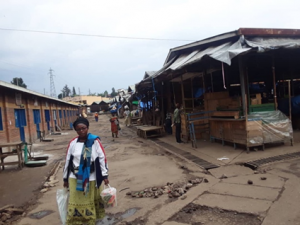Since December 2019, the global community has been faced with the challenge of limiting the spread of Coronavirus disease (COVID-19). On March 11, 2020, the World Health Organization (WHO) assessed the COVID-19 outbreak and declared it a pandemic. Efforts to contain the virus resulted in closing of international borders, with many countries putting measures in place to restrict the use of public open spaces, including markets especially in cities and towns.
Social distancing requirements pose challenges to operations of markets and call for innovation and rapid adjustment of spatial and operational arrangements in order for markets to continue providing food during the pandemic. While many countries have recognized markets as essential business, local governments and market committees are often left with limited support for operational adjustments during the public health crisis.
Markets provide access to healthy and affordable food, especially for communities with lower income in cities and towns; they enable local farmers and small businesses to make a livelihood and they cultivate local entrepreneurship. When markets are closed or their operations reduced during a health or other crises, the impact on local food supply and livelihoods is significant.
In some countries, markets are demonstrating innovations and piloting new best practices in terms of spatial arrangements to create the necessary distancing space or using mobile money for payments as in Rwanda, to reduce cash transactions. Adjustment of market booth spacing to ensure safe distancing, reduced cash exchanges and enhanced cleaning capabilities can make markets safer during the current COVID-19 pandemic.

Photo 1: Closed shops surrounding open air booths selling only food items, market in Musanze, Rwanda, April, 2020
In Rwanda, the installment of hand washing facilities and social distancing has been a core preventive measure to combat the spread of COVID-19 since the beginning of the pandemic. Such temporary facilities were also installed at markets as access to clean water at markets improve hygiene and sanitation and extends the shelf-life and improves the quality of fresh produce that are being sold. Segregation of wet and dry areas and adequate treatment of wastewater are additional services that can bring immense improvement to the market facilities. With additional benefits to public health, community nutrition and vendor livelihoods.
In the process of recovering from the effects of the pandemic, many urban markets in Rwanda, especially those serving poorer neighborhoods, would need to be upgraded. A recent assessment of market facilities in Rwanda’s secondary city Musanze highlights the need for improved water, sanitation and hygiene facilities for better and safer working conditions. The report also recommends investing in the physical and social infrastructure at markets for the benefit of urban and rural communities. Improved markets would facilitate the circular exchange of goods and finances within the urban-rural continuum.
The post COVID-19 recovery process presents the opportunity to address development backlog while enhancing societal resilience –by investing in markets that empower communities to rebuild the economy.
Authors: Ilija Gubic -Senior Officer, Green Infrastructure and Christina Cheong- Specialist, Green Cities of GGGI